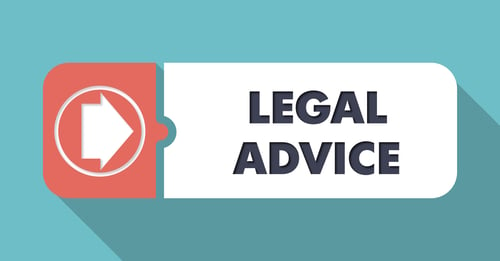Powell Tax Law Blog

Tax Season Kicks Off with Identity Theft Awareness Week: Jan. 30 – Feb. 3, 2023
Tax season is a great time of the year to remind Americans to be vigilant against cybercrime which is why the Federal Trade Commission (FTC) has chosen Jan. 30 to Feb. 3, 2023, as Identity Theft Awareness Week.
While accountants, CPAs, and professional tax attorneys are busy helping taxpayers prepare their 2022 returns, bad actors are using new scams aimed at stealing tax refunds and personal and financial information.
“Has someone used your personal information to open accounts, steal your tax refund, or file fake health insurance claims? That’s identity theft. It can happen to anyone, but simple steps can help lessen the chance it will happen to you,” says the FTC.
“Join us for Identity Theft Awareness Week 2023. The FTC and its partners will host free podcasts, webinars, Facebook Live interviews, and other events focused on avoiding and recovering from identity theft and spotting scams. We’ll have information for everyone and added advice for service members, older adults, young adults, and business owners. “
Identity Theft Awareness Week 2023 Events
The 2023 Identity Theft Awareness Week will feature some 16 events:
Wed. Jan. 25
- Early-bird event on Facebook Live: Veterans and Identity Theft – Protecting Against Fraud (15 minutes): Speakers from AARP and the FTC discuss identity theft prevention and recovery for veterans, scams that target personal information, and best practices for keeping your information safe. Join us live at 2 PM ET or on-demand at AARP Fraud Watch Network.
Mon. Jan. 30
- Webinar: Identity Theft Affects Every Community (30 minutes): No one is immune from identity theft. Speakers from the Identity Theft Resource Center (ITRC) and the FTC explore how identity theft can affect anyone, how to reduce your risk, and steps for responding when identity thieves strike. On the ITRC Events webpage. Time TBD.
- Facebook Live (in Spanish): Consejos Para Ayudarte a Proteger a tu Familia del Robo de Identidad: Únase a AARP y la FTC para aprender consejos sobre cómo protegerse usted y su familia del robo de identidad y lo que debe hacer si detecta signos de robo de identidad. Vaya a AARP Texas en español. 2 PM ET.
- Podcast: Identity Theft and Scams Affect College Students (5-10 minutes): College students and speakers from the ITRC and the FTC discuss identity theft and scams directed at stealing students’ personal information and money. In a series of five podcasts, we’ll look at identity theft and financial aid scams, job scams, impersonator scams, and social media scams. The Fraudian Slip podcast is available on the ITRC Help Center webpage.
Tue. Jan. 31
- Live Webinar: Identity Theft & Older Adults (30 minutes): Speakers from AARP and the FTC discuss fighting back against scams and identity theft. We’ll cover impersonator scams, sweepstakes scams, employment scams, and more. Register now. 2 PM EST.
- Webinar: Identity Protection and Your Business (60 minutes): Most businesses have sensitive customer and employee information in their files. If it falls into the wrong hands, it can lead to fraud, identity theft, or similar harm. Speakers from the BBB Institute for Marketplace Trust, the Small Business Administration, and the FTC discuss protecting personal information, data breach response, and free data security resources for small businesses. Link and time are TBD.
- Podcast: Identity Theft and Scams Affect College Students (5-10 minutes): College students and speakers from the ITRC and the FTC discuss identity theft and scams directed at stealing students’ personal information and money. In a series of five podcasts, we’ll look at identity theft and financial aid scams, job scams, impersonator scams, and social media scams. On The Fraudian Slip podcast, available on the ITRC Help Center webpage. Time TBD.
Wed. Feb. 1
- Podcast: Identity Theft Prevention — Outsmarting Scammers and Spotting New Trends: Speakers from the Department of Veterans Affairs and the FTC discuss avoiding and recovering from identity theft and spotting scams. Everyone is welcome, with information for active duty service members, veterans, and VA employees too. Ask questions at the end of the live stream. Join us using this link. Non-VA employees, please click "Continue as Guest." 1 PM EST.
- Podcast (in Spanish): Consejos Para Ayudarte a Proteger a tu Familia del Robo de Identidad: En un podcast corto, AARP y la FTC le ofrecerán consejos prácticos para protegerse contra el robo de identidad y lo que debe hacer si le sucede a usted o su familia. Para escuchar el podcast, vaya a ¿Sabes Qué? con AARP Podcast. 1 PM EST.
- Podcast: Identity Theft Affects People Who Are Blind and Print Disabled: Speakers from the Maryland Library for the Blind and Print Disabled and the FTC discuss identity theft trends, reducing your risk, and recovering if identity theft happens to you. On the Maryland State Library Agency webpage. Link and time are TBD.
- Podcast: Identity Theft and Scams Affect College Students (5-10 minutes): College students and speakers from the ITRC and the FTC discuss identity theft and scams directed at stealing students’ personal information and money. In a series of five podcasts, we’ll look at identity theft and financial aid scams, job scams, impersonator scams, and social media scams. On The Fraudian Slip podcast, available on the ITRC Help Center webpage. Time TBD.
Thurs. Feb. 2
- YouTube Video: What to Know About Tax Identity Theft: Speakers from Consumer Action and the FTC discuss IRS impersonation scams, tax identity theft, and avoiding, recovering from, and reporting fraud. Available on the Consumer Action YouTube page. 2:30 PM EST.
- Live Webinar: Scams, Tax Related Identity Theft, and Identity Protection PIN (60 minutes): Speakers from the IRS and the FTC discuss tax identity theft, including the latest scams aimed at stealing tax refunds and personal and financial information. Learn to spot and avoid the scams and recover if identity theft occurs. Ask questions too. Register now. 3 PM EST.
- YouTube Video (in Spanish): Lo Que Debes Saber Sobre el Robo de Identidad Relacionado a los Impuestos: Consumer Action y la FTC discutirán las estafas de impostores del IRS, el robo de identidad relacionado a impuestos y cómo evitar, recuperarse y denunciar el robo de identidad. Disponible en la página de YouTube de Consumer Action. 3:30 PM EST.
- Podcast: Identity Theft and Scams Affect College Students (5-10 minutes): College students and speakers from the ITRC and the FTC discuss identity theft and scams directed at stealing students’ personal information and money. In a series of five podcasts, we’ll look at identity theft and financial aid scams, job scams, impersonator scams, and social media scams. On The Fraudian Slip podcast, available on the ITRC Help Center webpage. Time TBD.
Fri. Feb. 3
- Podcast: Identity Theft and Scams Affect College Students (5-10 minutes): College students and speakers from the ITRC and the FTC discuss identity theft and scams directed at stealing students’ personal information and money. In a series of five podcasts, we’ll look at identity theft and financial aid scams, job scams, impersonator scams, and social media scams. On The Fraudian Slip podcast, available on the ITRC Help Center webpage. Time TBD.
What if Identity Theft Happens to You?
The FTC says to visit IndentityTheft.gov to report identity theft to the government and get a personal recovery plan.
IdentityTheft.gov walks you through recovery steps for more than 30 types of identity theft.
Other resources include:
- The FTC Identity theft website
- Resources to use and share in your community: bulkorder.ftc.gov.
- Consumer news and scammer alerts
- FTC video resources
Preventative Tips to Protect Your Identity
The IdentityTheft Resource Center says a “person’s identity is valuable. If it is stolen and abused, it can cause a lot of harm.”
Tips for protecting your identity on physical documents, cards, and devices:
- Only keep necessary cards and documents with you or in your car. Store them somewhere secure, like a safe or lockbox, when you don’t need them.
- Use a cross-cut shredder to dispose of documents with personally identifiable information (PII).
- Consider using a digital wallet for all your payment and identity cards. It is the safest way to pay, other than cash.
- Lock all of your electronic devices with a passcode, passphrase, or biometric lock. Also, turn off lock screen notifications.
Tips for protecting your identity online and on accounts with electronic access:
- Use a unique username and passphrase (12+ characters long) for all your online accounts.
- Make sure your browser is secure.
- Do not give out your PII or financial information through social media platforms, text or email, especially when you have not verified the requestor’s authenticity.
- Use a digital wallet.
- Avoid public Wi-Fi unless you can use a Virtual Private Network (VPN).
- Make sure your social media profiles are set to private; avoid posting anything publicly.
- Review companies’ privacy policies to understand how your data will be used, stored, and protected. Ask what information they must hold and what can be deleted.
- Use multi-factor authentication (MFA) with an authenticator app, if possible. Text messages and phone calls with authorization codes can be spoofed.
- Do not click on unexpected pop-ups in your browser or on your device. Also, don’t click on any links in unknown emails, texts, or social media posts. Instead, go straight to the source when verifying an email, text, or social media post.







